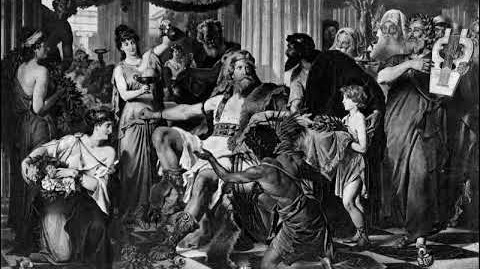Over the long Independence Day weekend, I was thinking about how events unfolded in the colonies during the revolutionary period. The story of American independence is a lot like most revolutionary events. Any number of decisions by the participants could have radically altered the outcome. Just as in France or Russia, the king had a lot of chances to resolve the situation in his own favor, but either failed to act or made the one decision that was the worst among all possible options.
One thing led to another and I got the idea of a show where I take a quick look at other tumultuous times to see what lessons we can pluck from that could be relevant to our own age. I don’t want to make this into a history podcast, but our side has a high level of historical literacy, so history talk is a good framing devise. That and variety keeps a podcast interesting. Me reading clips from the news every week would get dull for all of us in a hurry, so trying to things keeps it fresh.
The thing that always jumps out to me when reading about tumultuous times is the mistakes the made by the people in charge are so similar. The Tsar, for example, was an educated man, He had to see the parallels between his situation and that of King Louis, but he acted as if he were working from a script. Just think of how different things would have been if he simply fled the country as soon as it was clear he was losing support from the military. Instead, he played his role as written.
Of course, one of the benefits of thinking about the parallels between this age and prior ages, is we can apply how we see ourselves today to that time in the past. That provides some insight into what it must have been like to the people living through those interesting times. Think about how you felt after Trump won in 2016 or Brexit passed in Britain and then imagine people feeling the same way about some moment in the French Revolution or during the American Revolution.
This week I have the usual variety of items in the now standard format. Spreaker has the full show. I am up on Google Play now, so the Android commies can take me along when out disrespecting the country. I am on iTunes, which means the Apple Nazis can listen to me on their Hitler phones. The anarchists can catch me on iHeart Radio. YouTube also has the full podcast. Of course, there is a download link below.
Support the media that supports you. While all of us toiling in the fields of dissident media are motivated by a sense of duty, having a place to sleep and food on the table still requires money. Five bucks a month is not a lot to ask. Or, you can send money to me at: Z Media LLC P.O. Box 432 Cockeysville, MD 21030-0432. I now have a PayPal setup for those who prefer that method to donate. Thank you for your support!
This Week’s Show
Contents
- 00:00: Opening
- 02:00: The March Revolution (Link) (Link)
- 12:00: Irish Secret Societies (Link) (Link) (Link) (Link)
- 22:00: The French Revolution
- 32:00: The Khmer Rouge (Link) (Link) (Link) (Link)
- 42:00: The Russian Revolutions (Link) (Link) (Link)
- 52:00: The Sons of Liberty (Link)
- 57:00: Closing
Direct Download, The iTunes, Google Play, iHeart Radio, RSS Feed, Bitchute
Full Show On Spreaker
Full Show On YouTube
This entry was posted in Podcasts by thezman. Bookmark the permalink.

Check out the Z Man at thezman.com

Really solid treatment of the subject here. I wanted to comment a bit on the Irish portion, since I’ve written on it myself (https://theamericansun.com/2019/02/05/people-unite-landlords-subdue-lessons-in-failed-dissent/)
The agrarian secret society is a really important element of traditional Southern culture as well, and the relationship between the practice of mummery (which gave the White Boys their names) actually appears in the South following the War as well. The Ku Klux drew heavily from Gaelic influences in their tactics and aesthetics in a manner that mimicked earlier Irish and Scotch societies.
The thing I think you’re missing is the interplay between the secret society and the public organization- the step, for example, from The Molly Maguires (who I was disappointed to see you missed, since they were reconstituted in the US within the Ancient Order of Hibernians, another secret society) and Ribbonmen to the Fenians in the 1860s took the form of the United Irishmen movement and later the resurrection of that revolutionary organization as a political Land Reform movement under Daniel O’Connell. Likewise, to get from the Fenians to the IRA, you need Charles Stuart Parnell and the Land Leaguers as a public step (Sinn Féin was originally a non-violent Parnellite Party).
So there’s a sort of zig-zag because of the interplay of the agrarian Catholic secret societies and the urbanite cosmopolitan politcal agitators.